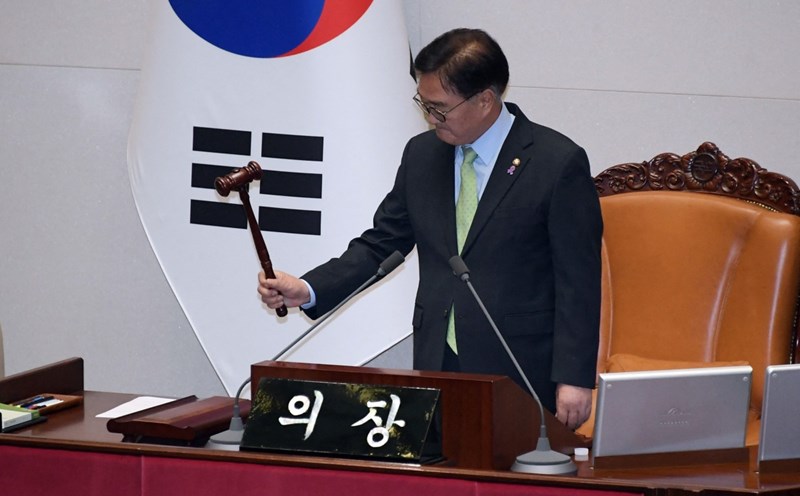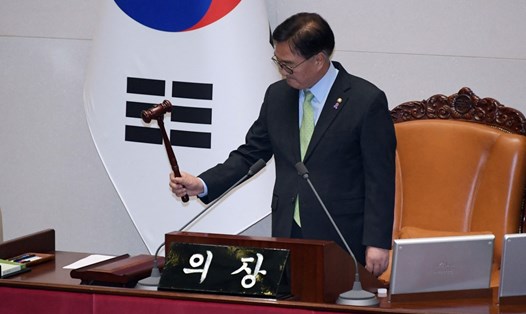On December 14, the South Korean National Assembly opened a plenary session to vote for the second time on whether to impeach President Yoon Suk Yeol in connection with his imposition of martial law, Yonhap reported.
The first attempt to impeach President Yoon Suk Yeol seven days ago failed after nearly all lawmakers from Yoon's ruling People Power Party (PPP) boycotted the vote.
The second impeachment motion against President Yoon Suk-yeol was filed by the opposition Democratic Party and five other small opposition parties on December 12. The motion accused President Yoon Suk-yeol of violating the constitution and other laws when he declared martial law on December 3. The martial law decree was lifted six hours later when the National Assembly voted to abolish it.
The impeachment motion was revised from the first motion to drop some charges against President Yoon Suk Yeol but also added others, including that President Yoon Suk Yeol ordered the military and police to arrest lawmakers while martial law was in effect.
A two-thirds majority vote is needed to impeach President Yoon Suk Yeol, so impeachment requires support from at least eight lawmakers from the ruling People's Power Party.
As of December 13, seven ruling party lawmakers have publicly expressed support for impeaching President Yoon Suk Yeol.
Once the impeachment motion is passed by the South Korean National Assembly, the South Korean Constitutional Court will decide whether to reinstate or remove President Yoon Suk Yeol from office.
If the impeachment of the president is ruled, Mr. Yoon Suk Yeol will become the second president to be removed from office after former President Park Geun-hye in 2017.











